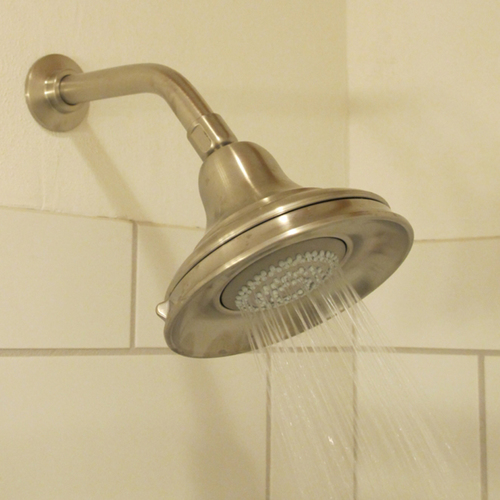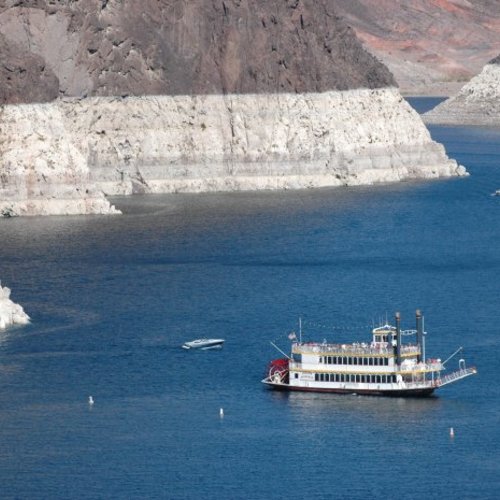
The Arctic National Wildlife Refuge (ANWR) covers more than 19 million acres in northeast Alaska. It’s about the size of North Carolina. A significant portion of the refuge — 8 million acres — is designated as wilderness (the Mollie Beattie Wilderness).
The Arctic Refuge is the largest national wildlife refuge in the United States, and remains the wildest land in the country. If you are looking for the geographic spot in our country that is farthest from any trail, road, or building, you’ll find that spot in the center of the Arctic Refuge.
When Congress was debating the establishment of ANWR and the Mollie Beattie Wilderness, pro-development interests lobbied legislators for the right to drill for oil in a portion of the proposed refuge. As a political compromise, Congress carved out a portion of the refuge, known as “Area 1002,” where oil drillers might petition at some future time for drilling rights, should valid reasons be presented that such drilling was in the national interest. Ever since the possibility of oil drilling in Area 1002 was established by legislators, environmentalists have sought to delay or prevent that drilling. But if the Trump administration has its way, oil companies will soon be setting up drilling equipment in the Arctic Refuge.
As the New York Times has reported, “plans to allow the lease sales were completed and approved by Congress in late 2017. … Republicans made major advances toward drilling [in ANWR] during the first two years of the Trump administration, when they controlled both Congress and the White House. But Democrats, since winning a majority in the House last November, have tried to slow or halt the drive toward lease sales.”
According to a recent story on Alaska Public Radio, “[Joe] Balash is a top Trump administration official, the assistant secretary for land and minerals management at…
Weekly Newsletter
Get building science and energy efficiency advice, plus special offers, in your inbox.

This article is only available to GBA Prime Members
Sign up for a free trial and get instant access to this article as well as GBA’s complete library of premium articles and construction details.
Start Free TrialAlready a member? Log in















27 Comments
Martin, this article reminds me of a Tweet I read from Bill Mckibben last year:
"Environmentalists need to win the fight forever while the other side need only win it once"
Great article and thanks for sharing. I wonder if you have ever read any work by Jerry Dennis, an author from northern Michigan who has written about canoe trips on Lake Superior to places "where humans have not likely been for 100 years or more."
"an unnamed mountain" that really speaks to me. Thanks for this.
I think what makes the problems we face today so difficult is that they aren't something to be conquered or defeated with a bigger this or a faster that. For perhaps the first time since the industrial revolution (maybe ever as a global society) we are being asked to show restraint. Yes, there is much work to be done, but even with all the available technology it has become clear now that we must stay within the limitations of the ecosystem that supports us. That is a harsh realization for many people. Instead of "one-upping" the previous generation it ours to find joy in seeking balance and in leaving some mountains unnamed.
Andy,
Most of us spend our lives in familiar surroundings, where each street corner is well known. If anything, Google Maps has only increased the level of familiarity and expectation we experience in the natural world.
The Arctic Refuge shatters one's sense of familiarity and expectation. One finds oneself in a world of wonder. If you seek unnamed mountains, you'll find countless examples in ANWR.
Can our species be saved by restraint? Perhaps. But it seems to me that individual attempts at restraint will be insufficient. We need our restraint to be bolstered by sound international agreements and intelligent, science-based regulations.
Wow, this is what I pay for? NO thank you. Ignorance is what you get when you let your own personal beliefs overshadow facts. If you want to talk about saving the environment, then you should first clean up your own backyards. Do you have a dog? Do you fly on planes? Do you eat meat? Do you consume dairy products? Do you live in an area requiring heating or cooling of your home? Why don't you research the impact of those on climate change?
Now, getting on to ANWR; your suggestion that this is somehow going to cause a disaster it patently false and without merit. I have been up on the North Slope. I've spent numerous nights in the Deadhorse hotel. I've been on Endicott Island and I've been at pump station no. 1. While I was there, it was (by far) the cleanest industrial job site I have ever seen. You couldn't find a spot of oil or antifreeze or anything else on the ground.
The fact is that the standards for operation are so far and away more strict than pretty much any place on earth with regard to the environment. In my experience, the workers on the slope went out of their way to make sure it was clean, free of trash, free of chemicals, spills, etc.
The fact of the matter is this, you want your dogs, you want your steaks, you want you cheese and pork and chicken, etc, but you don't want to talk about 1) the energy it takes to produce/support it and 2) the real environmental tragedy of those lifestyle choices-WATER. Water and energy spent on the aforementioned is doing the real damage. It takes an estimated 2000 gallons of water to product one gallon of milk. And while we all laughed at the early greenies talking about cow farts, turns out it was more true than not.
But, since people make these life choices that require excessive energy and water use, (maybe you do some or all of the above, but I already know you fly in airplanes as you mentioned in your post), the very least they could do is push for the most environmentally friendly way to meet those energy needs. So, our choice is to get our oil from the oils sands of Canada (something National Geographic called "the world's most destructive oil operation") and the middle east (where countries don't have the environmental regulations that we have in the US), or we can get it at home where we can ensure the methods are the most considerate of the environment. Your post is a classic NIMBY arguement. You'll consume the energy, you'd just rather get it from someplace other than the place you have chosen as sacred ground.
So, for those of you who want to make a difference here is what you can do:
1) move to a climate that does not require HVAC
2) stop driving you car (electricity still comes from fossil fuel so EVs still need to be parked)
3) stop eating meat
4) stop consuming dairy
5) get rid of your pets, especially big dogs
This "blame it on Trump" mentality is just ridiculous. Blame it on ourselves. It is not Trump's actions that has caused the need for more energy, it is our own ( although I don't eat meat or dairy and don't own a dog, I do own a car and fly on planes). Until people like you stop playing the blame game and start taking the necessary steps to reduce your own carbon foot print, it won't matter who is in office, the energy needs will continue to grow and the result will be more scenarios like the oil sands of Canada.
I would prefer, in the future, you keep your politics to yourself. If I want CNN commentary, I'll turn on CNN.
Kind Regards
David B,
I agree with many of your points. You are correct that North Americans whose lifestyles require high amounts of fossil fuel consumption -- that means most of us -- are part of the problem. You are correct that each of us needs to look in the mirror and find ways to reduce our dependence on fossil fuels.
I've been struggling with these issues for many years. My heat comes from firewood cut near my house. Most of my electricity (at least during months when the sun shines) is generated by a PV array. For many years, I strove to limit my food intake to food I grew myself. (My commitment to this experiment has flagged, however -- it's a tough goal to achieve.)
You're right that reducing the miles driven in gasoline-fueled cars is a good goal, as is reducing or eliminating the consumption of meat. I'm working on doing better. I'm not sure that it makes sense for all Americans who now live in Minnesota, Vermont and Maine to move to Florida or southern California -- (where were you thinking when you proposed that people with HVAC systems move to locations where HVAC systems aren't required?) -- because such a move would undoubtedly precipitate a water crisis in the communities that received the new refugees. I suspect what will really happen in decades to come is that people in southern California and Florida will move north in search of fresh water.
If you've worked in the oil industry on the North Slope, I understand your frustration with Americans who have no idea where their energy comes from. I worked for years in construction, repairing plumbing pipes and roofs at the homes of wealthy people who had no idea how to maintain their own homes. It's good to work with your hands and understand how our systems actually function -- and it's certainly good to know where our energy comes from, as you clearly do. That's one reason why I cut my own firewood and why I installed my own PV system.
I don't have much to say on the hypocrisy issue, except to plead guilty. Almost all of us who live in North America -- especially those of us who read articles on GBA (and can be assumed to have had a decent education and who have access to a computer or smart phone) are very privileged by world standards. We eat better than most humans on the planet, and all of us consume more resources that we deserve (if we assume that resources should be shared fairly). By what right should I eat lunch every day, instead of putting my lunch money into a jar that I save for a donation to Oxfam or Medicins Sans Frontieres? Philosophers discuss such questions, and we all need to ponder them. These are not irrelevant questions. But most of us fail the hypocrisy test. Rather than pointing fingers on these pages to those we feel are hypocrites, we all need to work on our own personal list of improvement goals, as it appears you are doing, and support each other as we struggle to build a future where the world is not at risk.
While my life is imperfect, I still have an opinion about whether oil drilling should begin in ANWR. I don't think that there is only one valid opinion on the matter, but I shared mine.
"If you want to talk about saving the environment, then you should first clean up your own backyards. Do you have a dog? Do you fly on planes? Do you eat meat? Do you consume dairy products? Do you live in an area requiring heating or cooling of your home?"
If someone answers no to all your prerequisites, can they then be against drilling in the ANWR?
I wasn't doing too badly on his test, but I guess I need to find someone to adopt my cat.
>"... I guess I need to find someone to adopt my cat."
Is that cat dog-friendly?
If yes, I'll take that cat!
Just because there are existence proofs of oil sources dirtier than ANWR doesn't make developing ANWR's oil resources the right thing to do.
Even so, it's a fairly artless un-nuanced list.
As it happens my electricity is currently 100% wind purchased via a broker holding the PPA (and no more expensive than my utility's standard mix). Any HVAC/other or transportation energy using that electricity is very low-carb.
My pets are adopted from shelters, and neutered. The dog is maybe 50lbs- is that too big? Should I euthanize him? And what does that have to do with drilling ANWR?
I haven't eaten meat in almost 40 years, don't plan to start, and my dairy use is limited. If I ate meat and gobs of cheese should I then favor drilling ANWR? How does that work?
Aviation fuel can be sourced from biofuels, though the current low pricing of the fossil goods it uncompetitive. Electrified propulsion aviation for short haul flights is anticipated to become viable in less than a decade.
Who is blaming it on Trump? This is a false narrative. Is disagreeing with a Trump administration policy changes on fossil fuel development or other development in the Arctic automatically "blaming" energy markets or climate change on Trump? (If yes, 'splain me that, in detail!) There are plenty of reasons to oppose fossil fuel development and advocating for alternatives (even while using fossil fuels) that have nothing to do placing blame for "...the problem..." on some government administration or another. Seeing it simply in those terms requires a fairly strange prism.
Opening up ANWR for oil development has nothing to do with "...the need for more energy..." and it barely moves the needle on those markets. The world price of oil is well below it's historical peak, the US is already a net exporter of fossil fuel energy, and that's likely continue for the forseeable future even without drilling ANWR or other previously protected areas.
If my dog eats only meat harvested from a sustainably managed forest and her poop is composted and returned to the forest as fertilizer, is that OK? Can I then be against drilling in ANWR?
Or, if I shoot my dog so that I can answer "no" to all of his questions, do I get enough points to be against all burning of fossil fuels?
I'm so confused.
Boys, boys, boys. Definitely got a laugh out of your posts. But I think you get my point? If you didn't, here it is:
There is nothing worse than a whiny environmentalist (or insert any other cause du jour) preaching about saving this and saving that all the while, their lifestyle is one of consumption, contributing to the "problem".
Scratch that, there is something worse, it's when someone does the above and turns it into a partisan attack on a blog where they just p!$$ed off about half of the people who come here to get good information about reducing energy consumption because they made it partisan. Wow, dripping wet with irony here,.
At any rate, the golden rule. When you are taking money from people who might be a liberal or might be conservative, don't brings politics into the discussion. The only thing you can do in risk 50% of your business.
David,
Being in favor of drilling for oil in the ANWR, and spelling out reasons why, would be far more effective than crying hypocrite (which, as Dana explained, doesn't really have any bearing on the specific issue). Many of the readers here are indeed trying to seek lifestyles that reduces their 'impact' on the environment. That you assume otherwise seems presumptuous if not bumptious.
Re partisanship: If the president and his policies cannot be discussed for fear of it being 'partisan' in an otherwise non-partisan space, then we'll be severely limited in what we can discuss —especially concerning environmental issues. The piece didn't come off to me as black and white—for Trump or against— universally. It perhaps did come off as against Trump on this specific policy issue. And that is the field in which to conduct the debate, if there were to be one.
I think the most coherent part of your argument is that we, as a society, still consume a lot of oil, and so we should weigh out options when it comes to purchasing it. It's a very reasonable perspective to take, but the process of weighing out these option doesn't begin and end with simply deciding we must do so. (Isn't an argument in and of itself).
I'm not in favor of drilling or and I don't care if they do drill. That's not the point. The point is that anyone who gets on their soapbox should make sure they are 100% not part of the problem. Otherwise, there's a word for it, which you have obviously figured out.
It would be like calling on people to properly air seal their homes with a 5 foot hole in your own roof in the middle of Montana.
Whatever. Obfuscate as you will. That changes not the facts.
"Whatever. Obfuscate as you will. That changes not the facts"
Come on David. You have opened a discussion on what you consider to be valid arguments against taking stands on drilling in protected areas - and you have received several substantial and thoughtful replies. Rather than engage them on the issues that have come up, you instead forestall any further debate by dismissing them as obfuscation. That doesn't exactly help people take you seriously.
Malcolm,
My arguement is pretty simple to understand. However, when people respond about shooting their dogs, well, I think that speaks for itself.
As I said, I don't care one way or the other on ANWR. I have said, based on my first hand experience on the slope, if you are an environmentalist and you are a consumer of anything petro based (plastics much?) ANWR would be the 1st place, not the last place you'd want to see drilled if economically feasible.
Why? Because, it will do the least environmental damage. Just like the slope; from an industrial pollution perspective, it is nearly pristine, and so too would ANWR be with US regulations. Compare that to the oil sands of Canada or the oil fields of the Middle East. There is no comparison. Those oil sources are destroying the environment, there is not even a counter to that arguement. Where is the outrage about the oil sands of Canada? https://www.nationalgeographic.com/environment/2019/04/alberta-canadas-tar-sands-is-growing-but-indigenous-people-fight-back/
So, as I said, if one is a consumer of oil products and an environmentalist too, then one should want drilling done in places with the highest degree of control over environmental impact, not the lowest. To wish otherwise is the very height of hypocrisy. if you wish otherwise and don't want to be a hypocrite, then stop using anything related to oil and gas. I am not sure how one argues against this point?
Unfortunately, in today's world, people like Prince Harry and Al Gore and Leonardo DeCraprio lecture the little people about oil use while flying from place to place in private jets, owning multiple mansions and having a bigger carbon footprint in one year than most will have in a lifetime. Those people are also hypocrites. It's like telling your kids not to do drugs while you're smoking a fat one in the back yard. It means nothing. Not only is it worthless, it makes people resentful and when someone does (rarely) come along who practices what they preach, they are tuned out b/c we've been so desensitized by the hypocrisy.
My other beef with this post is bringing politics into this forum. I wasn't aware that I was paying a monthly subscription for partisan content. This article could have been written without it, but it wasn't. I am sure I am not the only conservative on this site (but maybe I am). One criteria for me to subscribe to sites is for them to be apolitical. Not interested in having political debates. Not with my family, not with friends and not with people I don't know. You have your beliefs and I respect them, I have mine and we should be able to have discussion on a site about green building without the divisiveness. But some people just can't resist. I guess everyone needs a bogeyman...
Not sure Malcolm what more I can say. I'll be cancelling my subscription at the end of the month. I learned a lot of good information here but can't support people/organizations that seek to separate people based on their political beliefs. Everyone has a windmill, this one is mine.
David,
I think the push-back to your original post came from you cataloguing what was a completely arbitrary set of criteria for anyone to meet before they could oppose drilling. There is a huge difference between not being able to check the boxes on your list and the posturing of celebrities who no intelligent observer takes seriously. That's what brought out the posts about killing our pets.
The question of "political" content on GBA is a thorny one. The strength of the site is the high level of technical knowledge, but I don't see how publishing the odd opinion piece undermines that. Martin's views on drilling in Alaska don't change the content of the Q&A, nor does disagreeing with them in any way alter the usefulness of the advice offered here. I hope you stick around, ignore what you don't like, and take what you find useful.
David,
You're free to be upset.
Based on your posts I'm gathering that you're understanding of why some people oppose drilling in the ANWR is not well formulated. I address this because it is the root of your entire 'hypocrite' argument.
"if you are an environmentalist and you are a consumer of anything petro based (plastics much?) ANWR would be the 1st place, not the last place you'd want to see drilled if economically feasible."
Despite your feeling this way, it is not a universal truth begging for 'all environmentalists' to realize it. I appreciate your point about cleaner work sites and stricter regulations, but that is really only a drop (or one less drop) in the bucket of impacts. Mistakes (spills, etc) can always happen, and the entire process of searching for and drilling oil has significant impacts even if done with utmost care.
The heart of the issue is rooted in that ANWR is currently an expansive wilderness; one of the few remaining of that size. Additionally, the 1002 area is particularly important for the Caribou and other species; many species which require insanely large amounts of land uninterrupted by human exploits. There's really too much ecological detail to get into here to undress it all, but my goal is to plant the seed for realizing why, for some, preserving this wilderness and all it enables is valuable, perhaps invaluable. If you are interested in considering the 'preservationist' vs the 'conservationist' mentality, look into Pinchot and Muir.
No one is required to agree with the above perspective, but it can help to at least realize it is based on complex and reasoned thought, not hypocrisy or arbitrary partisanship.
The paper I linked below has some decent summaries of typical arguments made for and against drilling.
Cheers
Tyler,
It's as simple as this: Ghandi said you must become the change you wish to see in the world.
Traveling by plane to ANWR then complaining about the development of ANWR oil reserves is the height of hypocrisy. The very height. Become the change, otherwise, keep it to yourself.
Not in hopes for a drawn out exchange, but in an attempt to steer this towards the specific issue of drilling in the ANWR, I am linking this information rich article: https://www.nber.org/papers/w13211.pdf
Beware it is from 2007.
There seems to be something pathological in this drive to despoil and exploit anything anywhere that's still wild. Maybe so that our grandchildren will never be able to know what we've done. And anyone defending the intrinsic value natural systems is automatically accused of hypocrisy and heresy for even questioning market-based thinking. Why on earth is it appropriate to contemplate technical details of our built environment, but not the larger environment we are ruthlessly unbuilding?
I am glad GBA has the courage to publish things like this.
This article is awe-inspiring! Brings back memories of backpacking trips in the Sierra wilderness. And driving deliveries and noticing the beauty of the clouds and sky vs. the gritty, deteriorating buildings and telephone wires that we humans added to the landscape. Somehow, we need to educate our children to spend time in nature to appreciate the beauty and diversity of our planet. We humans are overpopulating and wrecking Earth like a cancer, disrupting ecosystems, and eliminating so many other species.
Thanks Martin
Obviously David B likes to see his own writing and has worn sleeping blinders while flying over the entire northern territories where you see, as far as the eye can see from 30,000 feet, the devastation left behind from oil extraction.
Hopefully you got a chuckle from Ed Abby's "Gather on the River" before you left for the Kongakut river. I so miss the wilderness but still hide in it when I can. Thanks for the reminder!
Paul,
First, the Northwest Territories are not ANWR. The Northwest Territories are in Canada. Second, the Northwest Territories has limited oil production from drilled wells. I believe that only BP is producing there but that may have changed.
Let me help with your narrative. You would be flying over Alberta which borders the Northwest Territories to see the "devastation". The devastation that I'm sure you are referring to "at 30,000" feet could only be that of the Athabasca oil sands, NOT drilling in the Northwest Territories. I for one have spoken out in other forums about the negative impact of extraction at Athabasca and the unbelievable amount of water required to extract the oil. I do much more than most to conserve and recycle.
The problem with people is they do a lot of complaining and not a lot of action. Martin is fine flying up there (wasting resources for his pleasure), but then has the audacity to complain that someone would want to obtain resources from that area to meet demand. My six year old knows that's hypocritical. Had Martin made his trek under clean power, that would be a different story.
You see Paul, one of the biggest problems we have it that there are a lot of "do as I say, not as I do" people in this country. People who want to preach, but aren't willing to make sacrifices to support that which they expose. I want to conserve. I love bacon. LOVE IT. But I don't eat it anymore, nor do I drink milk or eat ice cream or any other meat products. If you don't get why, look it up.
While soap boxers are a problem, so are people unwilling to call them out on it. Don't preach to me about global warming when you have five houses (Al Gore much?) or fly around on a private jet (Leonardo?). That's all. I call BS when I see it. Some people like it, some don't, but that doesn't change the facts. So you like Martin, I'm sure he's a nice guy too. But, that doesn't change the fact this he is being hypocritical here.
Additionally, I have first hand knowledge of the impact of resource acquisition beyond 65 N. Between you and me, I'd venture a guess that I'm the only one that's physically touched pump station 1 on TAPS, or been out on Endicott Island? You're not seeing much of either from 30,000 feet in plane.
David,
I agree that you need some skin in the game to be credible, but I'm having a hard time with the idea that you can't have opinions of subjects unless you totally forswear any reliance on what you are critical of. I have problems with some aspects of modern medicine, but don't think I should have to decline any treatment until they are solved. I similarly see problems with the our present democratic structures, but I still vote. We all are in this mess together. Excess consumption is an obvious problem, but that's very different than saying no consumption is a necessary prerequisite to taking part in the conversation.
Malcolm,
That's a fair statement. Cheers,
David,
It's a defence I had to make given my own profligate lifestyle :)
The Trump administration continues to move forward with its plan to drill for oil in the Arctic National Wildlife Refuge. The story was widely reported on August 17, 2020, but for those who missed it, here is a link to the New York Times article.
The article notes, "The Trump administration on Monday finalized its plan to open up part of the Arctic National Wildlife Refuge in Alaska to oil and gas development, a move that overturns six decades of protections for the largest remaining stretch of wilderness in the United States."
Log in or become a member to post a comment.
Sign up Log in